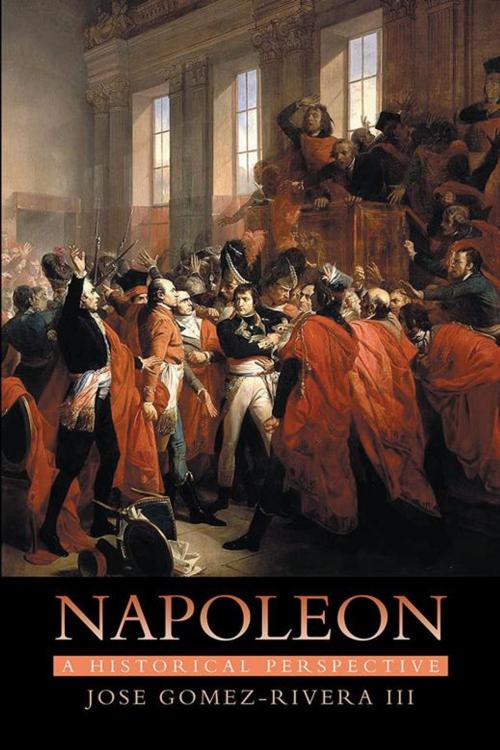| Author: | Jose Gomez-Rivera III | ISBN: | 9781493162963 |
| Publisher: | Xlibris US | Publication: | February 13, 2014 |
| Imprint: | Xlibris US | Language: | English |
| Author: | Jose Gomez-Rivera III |
| ISBN: | 9781493162963 |
| Publisher: | Xlibris US |
| Publication: | February 13, 2014 |
| Imprint: | Xlibris US |
| Language: | English |
Napoleon has long suffered from his detractors. This book is not a biography, but a perspective based on over a decade of my lectures on the subject and an effort to base a historical analysis of the era on sound historical sources and in the proper context in order to redress what; I view, as the failings of Napoleonic historiography. the historical analysis and interpretation of Napoleons role, actions and consequences to be flawed and tainted by a popular acceptance of historical interpretations proffered by British and commonwealth scholars that have portrayed him as a reactionary dictator driven by insatiable ambition to heights and then brought low by a coalition of liberating nations. This interpretation is, at best, misleading and the byproduct of British political goals during the Napoleonic Wars; brilliantly articulated and proselytized with wartime propaganda, and their aftermath. Propaganda often outlasts its purposes to become national myth. In this case, it has retained its hold on popular opinion as a result of intellectual laxity and resistance in challenging existing norms and opinions; which affects both the general reader as well as historians. Now let the debate begin.
Napoleon has long suffered from his detractors. This book is not a biography, but a perspective based on over a decade of my lectures on the subject and an effort to base a historical analysis of the era on sound historical sources and in the proper context in order to redress what; I view, as the failings of Napoleonic historiography. the historical analysis and interpretation of Napoleons role, actions and consequences to be flawed and tainted by a popular acceptance of historical interpretations proffered by British and commonwealth scholars that have portrayed him as a reactionary dictator driven by insatiable ambition to heights and then brought low by a coalition of liberating nations. This interpretation is, at best, misleading and the byproduct of British political goals during the Napoleonic Wars; brilliantly articulated and proselytized with wartime propaganda, and their aftermath. Propaganda often outlasts its purposes to become national myth. In this case, it has retained its hold on popular opinion as a result of intellectual laxity and resistance in challenging existing norms and opinions; which affects both the general reader as well as historians. Now let the debate begin.















